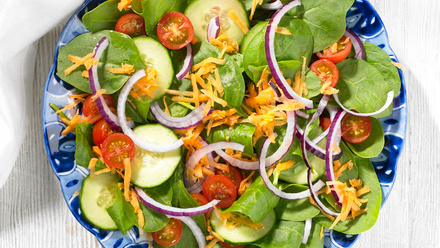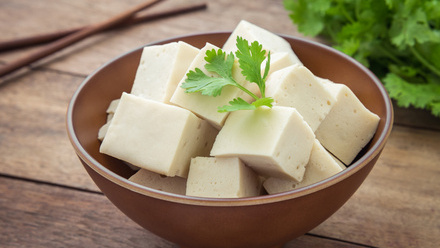Representatives from the Food and Drink Federation, the Vegan Society and the BDA address issues around iodine food fortification.
The BDA’s England Board and the Maternal & Fertility Nutrition Specialist Group recently completed a project to consider the case for wider iodine fortification.
This has now developed into a campaign to increase public awareness of the essential role of iodine in the diet – promoting foods that provide iodine and working towards a commitment from market leaders that all staple alternative products sold in the UK are fortified with iodine equivalent to the amounts available in cows’ milk (25-50µg per 100ml) and to promote knowledge for those who switch wholly from cows’ milk to plant-based alternatives.
We asked three contributors to outline their perspectives on the role of iodine and the challenges of wider fortification.
Vegan diets and iodine
by Heather Russell
Why this campaign matters to the Vegan Society
Research suggests that the number of Brits eating vegan diets quadrupled between 2014 and 2019, reaching a total of around 600,000. Recently, there has also been a lot of general interest in vegan alternatives. In 2020, a survey conducted by The Grocer found that most adults had purchased plant-based alternatives to milk.
At The Vegan Society, my colleagues and I have noticed that many people search for information about vitamin B12 but iodine is not a popular topic. Iodine deserves special attention because most plants do not require this mineral for their growth. The iodine contents of plant foods vary and tend to be low, so vegans need to ensure that their diets contain a reliable source of this mineral.
Through raising awareness about the essential roles of iodine and issues around fortification of plant-based alternatives to milk, the BDA and its members can help those who choose vegan diets and vegan alternatives to optimise their nutrition.
Reliable sources of iodine
When planning a vegan diet, it is important to include a reliable source of iodine, such as iodine-fortified plant-based alternatives to milk or a supplement containing potassium iodide or potassium iodate. Dietitians are in a great position to raise awareness of the essential roles of iodine and simple solutions for vegans.
Fortification of plant-based alternatives to milk
These products play a valuable role in dairy replacement, providing a range of nutrients which may include calcium, vitamin D, vitamin B12, riboflavin and iodine. However, vegans and other consumers must navigate variations in the range and amount of nutrients added to plant-based alternatives to milk. Dietitians can help ensure that these consumers have relevant knowledge of nutrition and food labelling at their fingertips. We can also help the BDA campaign for better fortification.
During recent years, I have been pleased to see an increase in the availability of iodine-fortified alternative products in the UK, making it easier for vegans to maintain their intakes of essential nutrients when replacing dairy. However, many plant-based alternatives to milk do not contain iodine and there is variability in the amount of iodine added. Some products (such as these soya milk options from Alpro and Asda) contain around 22.5-24.8 micrograms per 100ml, which is similar to cows’ milk. A daily intake of half a carton (500ml) of this kind of product would provide about 80% of the recommended iodine intake for adults in the UK. This is my recommendation to vegans relying on this source of iodine.
How can we help vegans?
- Help people to read food labels, empowering them to choose fortified plant-based milk alternatives which are a good fit for their diets.
- Raise awareness of the nutritional value of fortified plant-based alternatives to milk in early years settings, schools, hospitals and other catering settings.
- Share helpful tips about iodine like the information available at vegansociety.com/nutrition.
- Support the BDA’s call to market leaders to fortify staple alternative products sold in the UK with iodine.
We need clarity to win hearts and minds
by Kate Halliwell
Fortification has a long and positive history in the UK. The addition of calcium to flour dates back to the Second World War. The UK's National Diet & Nutrition Survey data shows that the voluntary fortification of breakfast cereals substantially contributes to iron, folate and vitamin D intakes. But fortifying foods is not without its controversies as anyone who has followed the folic acid saga for the last 20 years will be painfully aware.
Whilst the WHO’s stated preferred strategy is universal iodisation of salt, there are no indications that Government is considering this. Perhaps understandably they are concerned this might confuse the public message to reduce salt intake. So, for the foreseeable future, it would seem any fortification will be on a voluntary basis.
For a food company deciding whether to voluntarily fortify, in addition to the public health questions, there are also other practical questions that need addressing. Will the ingredient impact taste or texture? What’s the bioavailability after processing or the degradation in longer shelf-life products? What are the labelling implications? What’s the increase in cost?
It’s no surprise then that voluntary fortification of food is not something companies undertake lightly. What would help give companies the certainty that fortification of iodine is a good thing?
A really good start is clarity.
Clarity on the requirement. Ideally this would involve Government as well as respected organisations like the BDA. Large companies employ nutritionists, but this might just be one or two people covering thousands of products. Having easy-to-find, clear statements helps company nutritionists keep up to date.
Similarly, clarity on the products or ingredients that companies should focus on is helpful. I’ve touched on salt above. Although technically straightforward and used widely globally, this is unlikely to be an acceptable solution in the UK.
It could be the focus is on dairy alternatives, given their rise in popularity and the substantial contribution dairy makes to iodine intake in the UK diet. There will be a need for discussion on whether this is appropriate, as well as a need to understand technical possibilities but, if this is to be a focus, a clear statement will help relevant companies be aware they need to join in the debate.
A final plea for clarity is on the benefits this brings to consumers. There is growing rhetoric against processed foods and ingredient lists with five or more items listed. Many consumers opt for ‘clean’ label products, believing they are making a healthier choice by avoiding chemical names. This makes needing to declare potassium iodate in your ingredients list unattractive.
Improving the nutritional content of food should be seen as beneficial, but it seems society has an ongoing unease with using science when it comes to food. Unless Government, civil society and industry are all clear as to the benefits of processing – whether that’s food safety or nutritional – then there is a real risk that companies will find it increasingly difficult to sell fortified foods.
Consumers need to understand the importance of iodine
by Dr Julie Abayomi
Many people in the UK have a general awareness of important nutrients such as iron and calcium, however, iodine is less well-known.
Iodine is needed for thyroid hormone production but more importantly for foetal brain development, so a deficiency prior to, or during pregnancy, could have devastating effects on foetal health & development.
The growth of the ‘plant-based alternatives to milk’ market in recent years has meant many consumers, and particularly vegans may be unaware of an increased risk of iodine deficiency if they do not choose well. Plant-based alternatives to milk products include those made from soya, almond, coconut, hazelnut, oat, rice and hemp.
The UK now regularly consumes plant-based alternatives to milk, with young women (16-24 years old), one of the leading cohorts. Many are not fortified, or the level of fortification is insufficient when compared to dairy sources.
In the UK, the most reliable sources of iodine in the diet are cows’ milk, eggs and sea fish. There are limited plant sources, namely seaweed, but the amount varies considerably and can be excessive (which can be harmful). So, vegans and people who do not consume cows’ milk, eggs and fish regularly may be at increased risk of iodine deficiency.
In 2016, the NDNS found that 27% of girls aged 11-18 years and 15% of adult women achieved less than the Lower Reference Nutrient Intake (LRNI).
Furthermore, recent research comparing the iodine status of plant-based alternative consumers and cows’ milk consumers showed a deficiency in the former group1 with the authors recommending plant-based milk alternatives be fortified to provide a similar level of iodine to cows’ milk.
We want consumers to be more aware of the importance of adequate iodine intake. Whilst most plant-based alternatives are fortified to contain similar amounts of calcium to cows’ milk,2 many are not fortified with iodine. If it is organic, we want consumers to know it won’t be fortified at all.
The public needs to be more aware of the essential role of iodine in the diet, particularly pregnant women and those of child-bearing age. We are working towards a commitment from market leaders that all staple alternative products sold in the UK are fortified with iodine3 and that new and existing products contain similar levels to those found in cows’ milk.
References
- Dineva, Rayman & Bath 2020, Iodine status of consumers of milk-alternative drinks Cows’ milk: data from the UK National Diet and Nutrition Survey, British Journal of Nutrition, Cambridge Core.
- Which has 120 mg of calcium per 100ml; for example soya milk naturally contains 20mg/100ml, but is fortified by an additional 100mg/100ml to provide 120mg/100ml.
- equivalent to the amounts available in cows’ milk (25-50µg per 100ml).







